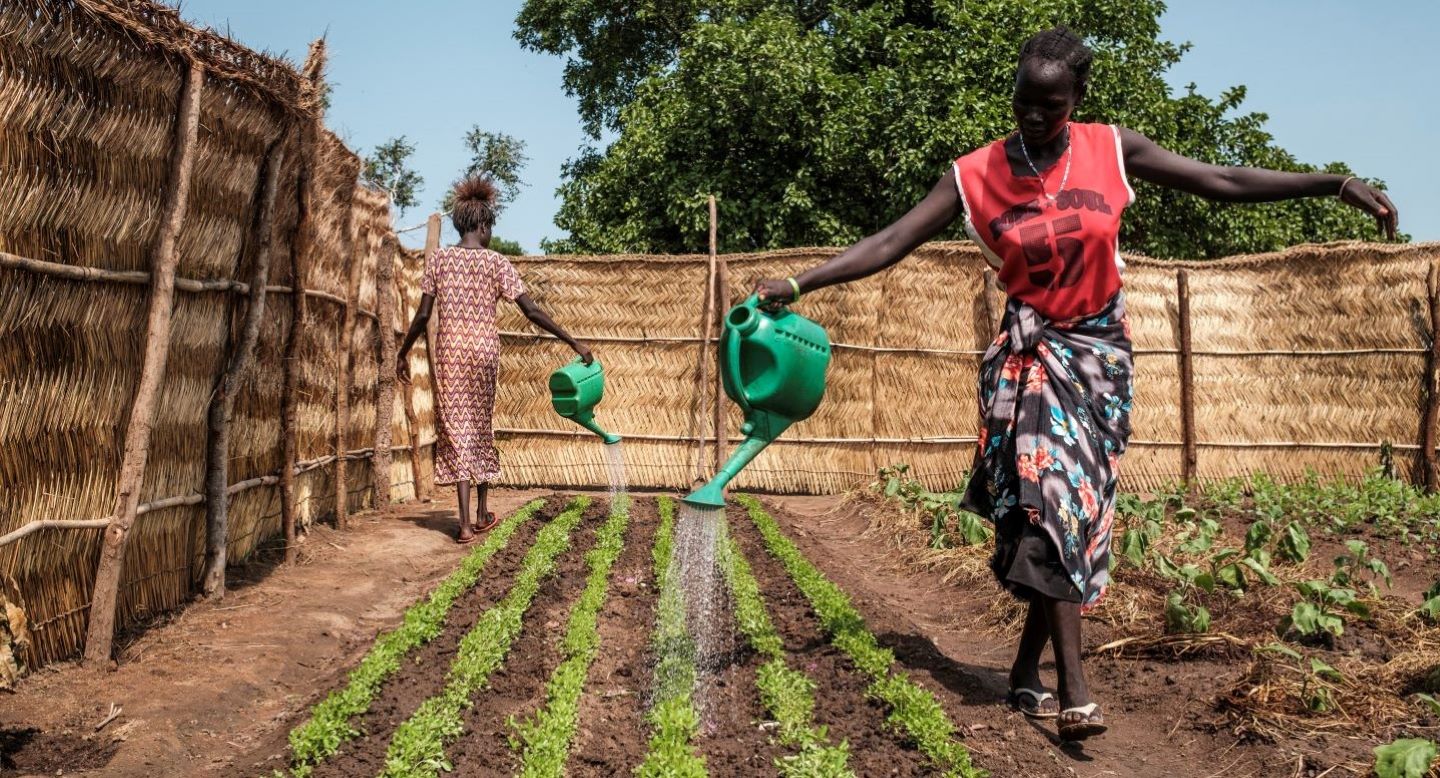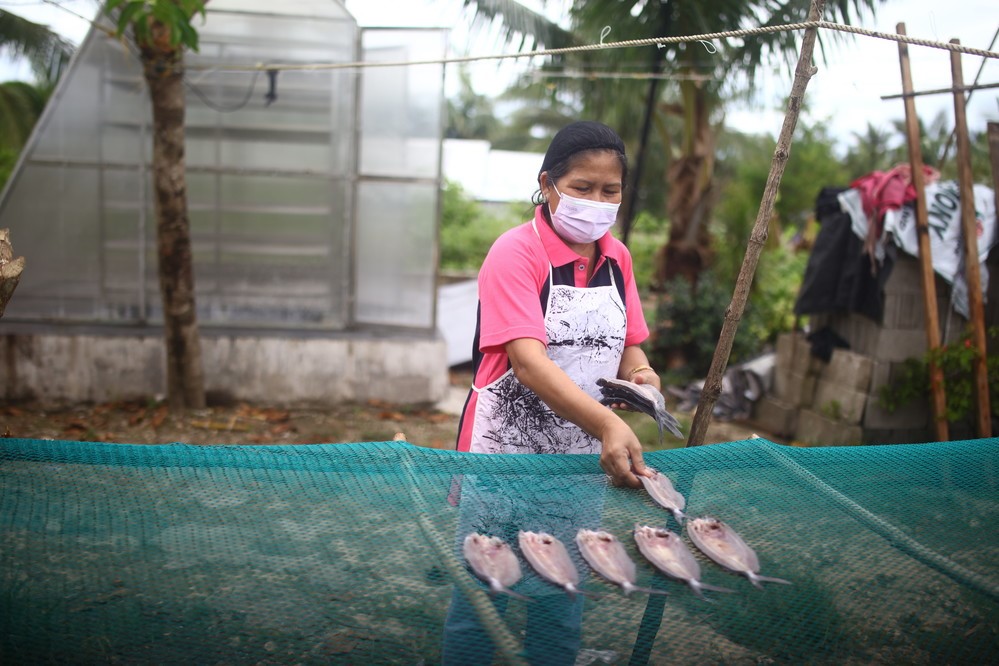More food with every drop
IFAD Asset Request Portlet
Asset Publisher
More food with every drop
Estimated reading time: 3 minutes
There is no food without water.
But food production also puts the biggest strain on our water sources. In fact, almost all of surface and groundwater withdrawals go towards agriculture.
With many parts of the world increasingly affected by water scarcity, it’s critical that we use it wisely.
Luckily, small-scale farmers are up to the challenge.
Innovative irrigation

Three in four small-scale farms in low- and middle-income countries are in water-scarce regions, and less than a third have access to irrigation.
IFAD helps smallholders produce more crops for the volume of water used, through better land management, agronomic practices and water control.
For example, drip irrigation delivers just the right amount of water at the right time, helping to reduce wastage. Techniques from conservation agriculture, like crop rotation and no-till farming, nurture the soil so it holds on to water.
In Jordan, Nour Omar Muhammad Banat introduced an innovative solar-powered drip irrigation system to her vineyard. Now that it's flourishing, she’s planning to add olive and fig trees.
To set-up and maintain drip irrigation systems, you need the right materials. That's why IFAD builds local supply chains for affordable irrigation equipment in Madagascar, India and Ghana so farmers can grow vegetables even in the dry season.
In Egypt, the OFIDO project replaced traditional earth-lined irrigation channels with underground pipes, making water distribution more equitable and significantly increasing yields.
Not a drop wasted

IFAD doesn’t just help farmers reduce the amount of water needed, it also helps them reuse it.
Once it’s been treated, wastewater can mitigate water scarcity, as IFAD has trialled in Brazil and Jordan.
Wastewater can also be used to generate biogas and compost or to produce more foods, like farming fish in flooded rice paddies, creating a circular economy for water.
Choosing the right crops
As the climate changes, so too do growing conditions. Rising temperatures and environmental degradation mean many farmers cannot rely on water reaching their crops at the right time and in the right quantity. This can devastate their livelihoods.
One solution is to diversify these crops. IFAD helps farmers grow ancient and more adaptable crops, like sorghum, millet and fonio. In Nepal IFAD-funded research showed that new drought-tolerant rice varieties can lead to yields that are 30 per cent higher than traditional varieties.
Some communities are going back to basics. In Brazil’s semi-arid Caatinga region, drought and soil degradation are harming crops. With IFAD support, indigenous seed guardians collect and replant local seeds to store their genetic wealth for future generations and to identify varieties that are more resilient to climate change.
Making food go further

©IFAD/Enrique Espejo Jr.
Alarmingly, 14 per cent of food never makes it to the consumer. Every gram that’s lost before consumption means lost income for small-scale farmers and the loss of the precious water used to produce it. Better connectivity, storage and food processing help prevent this.
Even the simplest solutions can make a difference. In Timor-Leste, farmers started storing their harvested maize in airtight drums provided by IFAD and their food losses fell precipitously.
In Cambodia, the IFAD-supported S-RET project developed solar dryers with which farmers can hygienically preserve water-intensive foods like fish and beef.
Good roads help bring food to markets and consumers before it spoils. When well-designed roads match local needs, they can also help conserve water resources.
As water resources around the world dwindle, small-scale farmers are innovating and drawing on methods old and new to produce the diverse, nutritious food we all need to flourish.
Ensuring they have the know-how and resources they need is the best way to conserve our water for the future, while preventing food insecurity in the present.
Publication date: 16 October 2023